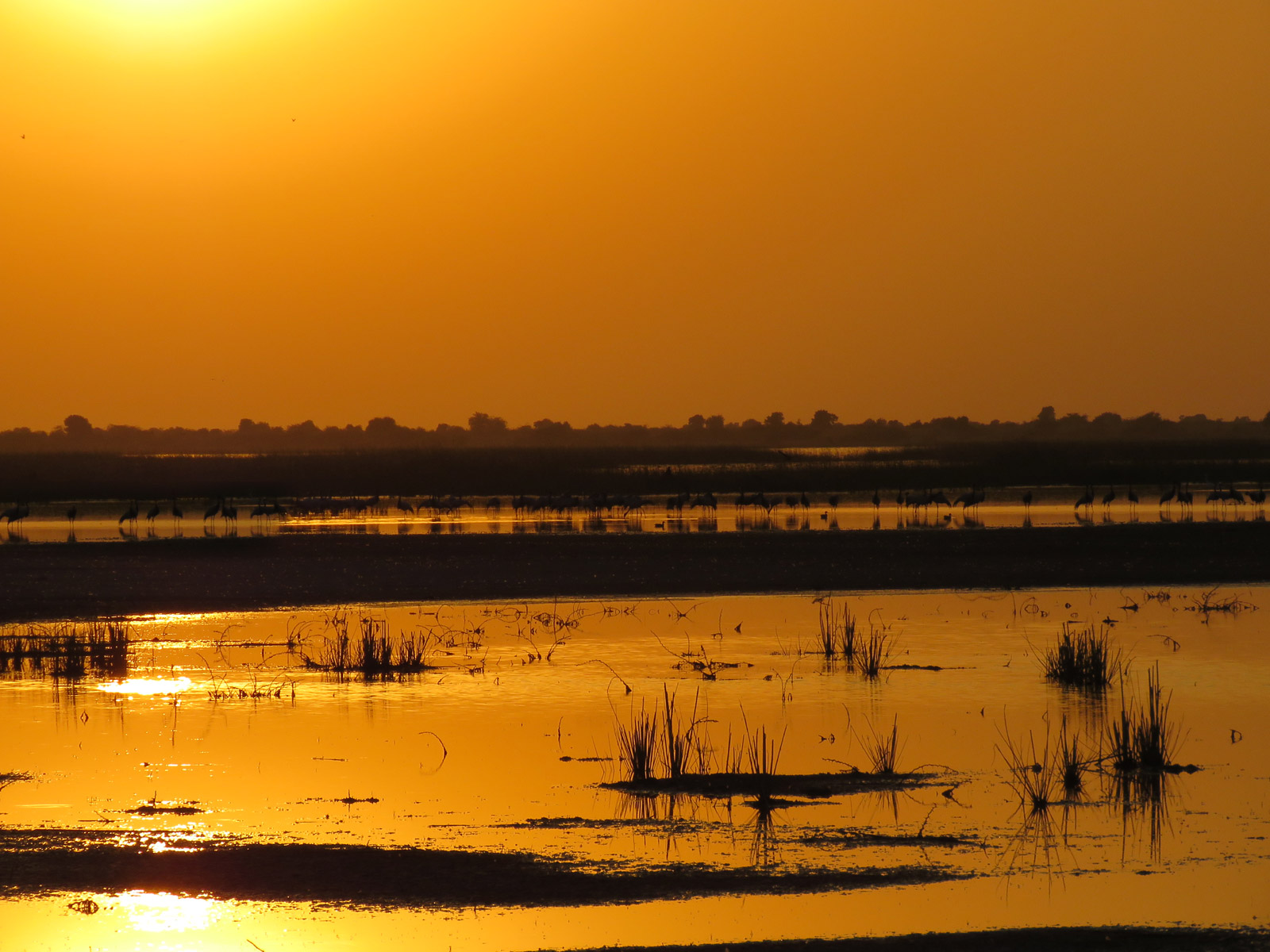Little Rann of Kutch
How to Get there?
![]() Approximately a 03 hour
drive from airports at Ahmedabad & Rajkot, well connected by flight from metropolitan cities
such as New Delhi & Mumbai.
Approximately a 03 hour
drive from airports at Ahmedabad & Rajkot, well connected by flight from metropolitan cities
such as New Delhi & Mumbai.
Type of Safari at the Park?
![]() The safaris are in
a Jeep, from dawn to dusk.
The safaris are in
a Jeep, from dawn to dusk.
History & Overview
A vast expanse of around 5000 sq km of arid and muddy salt-flats, inland from the Gulf of Kutch lies the Little Rann of Kutch – part of a geographical landscape which over 66 million years ago was a part of the Arabian Sea. There are around 300 bird species recorded here, 42 species of mammals including the endemic Indian Wild Ass (Equus hemionus khur)which can be found in the area of Dasada.
The Little Rann of Kutch gets its name as it is a southern extension of the larger salt marsh which is the Greater Rann of Kutch, however the protected areas of the Little Rann of Kutch are ecological hotspots and extremely fruitful for bird watching in India.
The Little Rann of Kutch until many centuries ago had large tracts of estuarine saline water, however over time through excessive silting by its seasonal rivers caused as a result of tectonic movements, it now lies as a semi-barren and unique ecological landscape which floods briefly during the monsoons and transforms itself into a marshland in which the resident and migratory bird species revel.
Flora and Fauna
| Wildlife | Birds |
| Indian Wild Ass | Short-eared Owl |
| Indian Gazelle(Chinkara) | Greater Hoopoe-Lark |
| Desert Fox | Lesser Flamingo |
| Blue Bull(Nilgai) | Cream-coloured Courser |
| Indian Grey Wolf | McQueen’s Bustard or Houbara Bustard |
| Indian Golden Jackal | Crested Lark |
| Greater Short toed Lark | |
| Indian Courser | |
| Rufous-tailed Scrub Robin | |
| Greater Flamingo |
Geography and Climate
| Area | 4954 sq.km |
| Co-ordinates | 23.4618° N, 71.2874° E |
| Weekly Off | None |
| Functional Days | October to May |
| Rainfall | 25 mm |
| Forest Type | salt marsh that features barren mudflats dotted with small islands |
Enquire Tour
Tours
National Parks
Explore

Post - Tala, Bandhavgarh National Park, District - Umaria, Madhya Pradesh, Pin code - 484664
+91 9630507774, +91 9340711175Email : info@tigerjourney.in
© 2020 All Rights Reserved






